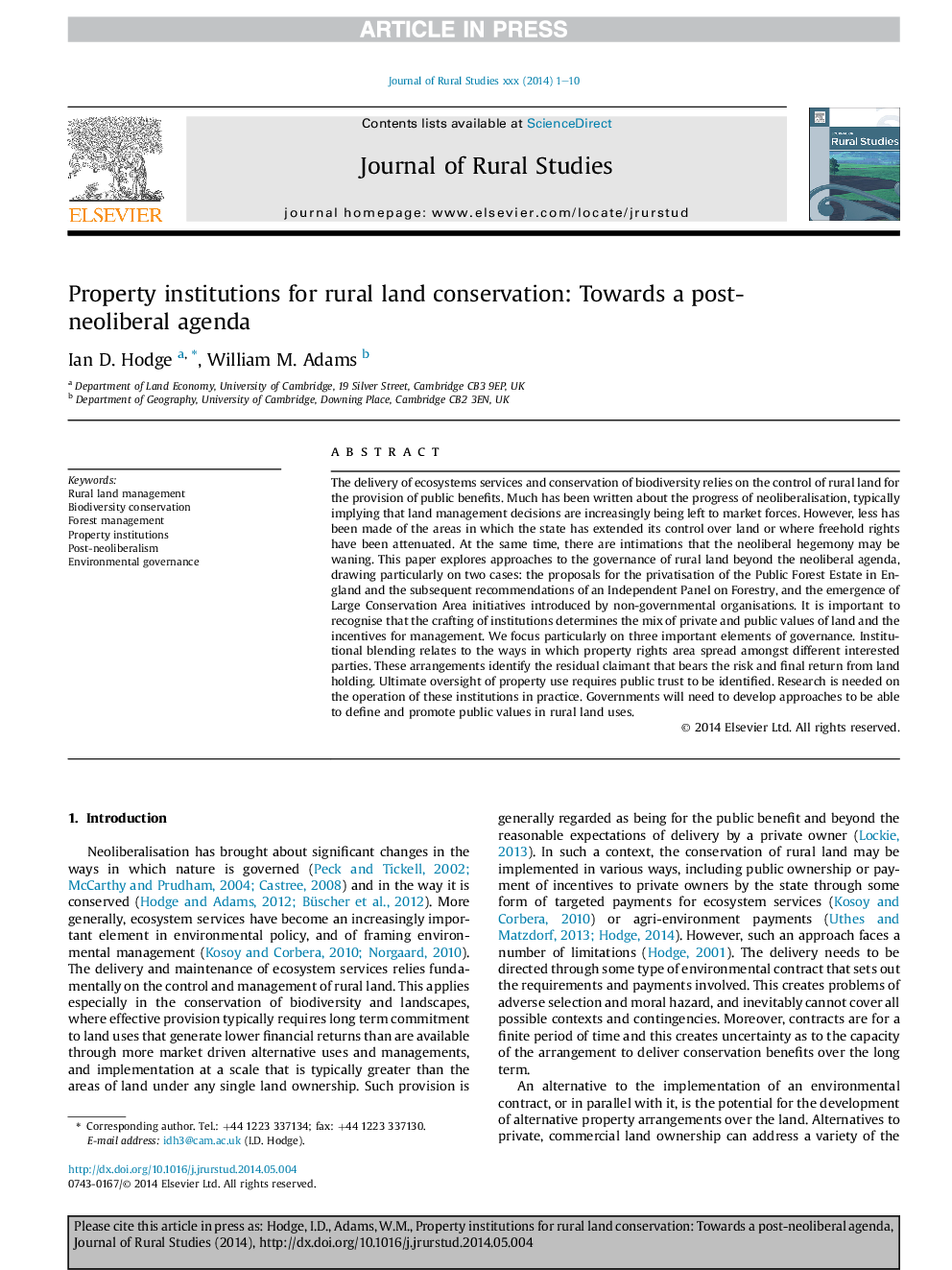| Article ID | Journal | Published Year | Pages | File Type |
|---|---|---|---|---|
| 6545790 | Journal of Rural Studies | 2014 | 10 Pages |
Abstract
The delivery of ecosystems services and conservation of biodiversity relies on the control of rural land for the provision of public benefits. Much has been written about the progress of neoliberalisation, typically implying that land management decisions are increasingly being left to market forces. However, less has been made of the areas in which the state has extended its control over land or where freehold rights have been attenuated. At the same time, there are intimations that the neoliberal hegemony may be waning. This paper explores approaches to the governance of rural land beyond the neoliberal agenda, drawing particularly on two cases: the proposals for the privatisation of the Public Forest Estate in England and the subsequent recommendations of an Independent Panel on Forestry, and the emergence of Large Conservation Area initiatives introduced by non-governmental organisations. It is important to recognise that the crafting of institutions determines the mix of private and public values of land and the incentives for management. We focus particularly on three important elements of governance. Institutional blending relates to the ways in which property rights area spread amongst different interested parties. These arrangements identify the residual claimant that bears the risk and final return from land holding. Ultimate oversight of property use requires public trust to be identified. Research is needed on the operation of these institutions in practice. Governments will need to develop approaches to be able to define and promote public values in rural land uses.
Related Topics
Life Sciences
Agricultural and Biological Sciences
Forestry
Authors
Ian D. Hodge, William M. Adams,
